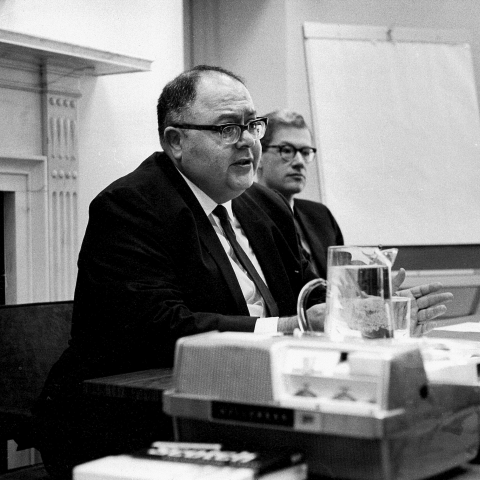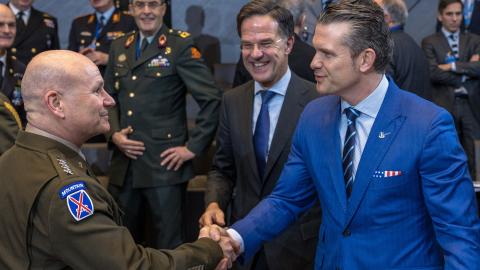
Herman Kahn
Founder, Hudson Institute
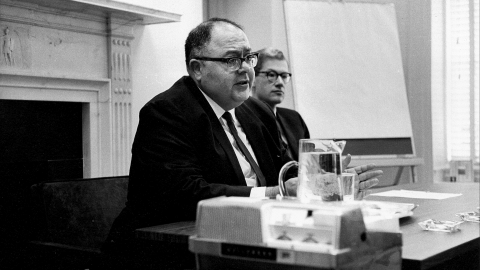




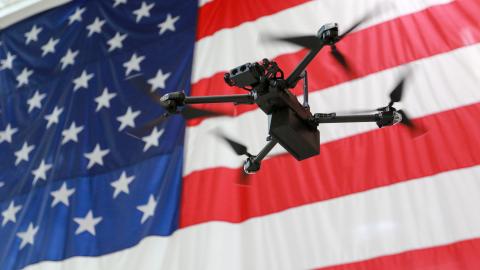

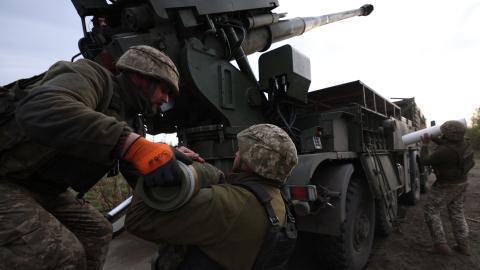














Founder, Hudson Institute

Herman Kahn, the most celebrated and controversial nuclear strategist of his day, later to be known also as a futurist, political scientist, geo-strat
Herman Kahn, the most celebrated and controversial nuclear strategist of his day, later to be known also as a futurist, political scientist, geo-strategist and founder and director of the Hudson Institute "think tank," began his career in the late 1940s with the Rand Corporation as a physicist and mathematician. His co-directorship of the Strategic Air Force Project while being at Rand inspired him to write On Thermonuclear War, the book that elevated him to national and international preeminence. On Thermonuclear War was the first book to systematically analyze the possible effects of nuclear war and the possible strategic options under various circumstances. The book was followed by a sequence of similar studies having a profound impact on the US nuclear and military strategy and on strategic thinking in general (Thinking about the Unthinkable, Crises and Arms Control, On Escalation).
In 1961 Kahn resigned the Rand Corporation and established the Hudson Institute, an organization that developed into a pioneer and model for the new emerging forms of public policy and interdisciplinary research institutions. Kahn became the first director of the Institute, which was set up to do inter-disciplinary freelance research into what he termed "important issues, not just urgent ones."
While he maintained his interest in strategic and military matters, Kahn began to turn his attentions to economics, politics and especially to public policy issues. He became one of the founding fathers of the Futures Studies (futurology) movement contributing to the highest degree to its methodological and theoretical foundations: he developed the scenario method, the application of systems analysis and of mathematical and scientific tools to forecasting, and the organizational bases of interdisciplinary and future-oriented research.
He had a critical and very visible participation in the public debates of his day on topics related to economic development, global trends and the impact of technology. He challenged the neo-Malthusianism and doomsday scenarios and rhetoric popular in the 1970s and with a series of path breaking studies he contributed decisively to the emergence of a more realistic and pragmatic approach to global problems (The Year 2000: A Framework for Speculation on the Next 33 Years, World Economic Development, The Next 200 Years and The Coming Boom: Economic, Political and Social).
During his lifetime he was considered: "one of the world's great intellects", "a mental mutation" possessing "an incredibly high, stratospheric I.Q.", a "mesmerizing presence", "spectacular", "a provocateur in the sedate world of ideas", "a reformer", "a technological optimist" or "a futurist who attempted to cope with history before it happens." Kahn described himself as a "free-thinking intellectual (...) largely determined by a desire to do policy-oriented studies with practical applications (...) pragmatic, eclectic, and synthetic in thinking". "I'm against ignorance," Kahn once told, "I'm against sloppy, emotional thinking. I'm against fashionable thinking. I am against the whole cliché of the moment".
--Paul D. Aligica, Hudson Institute



